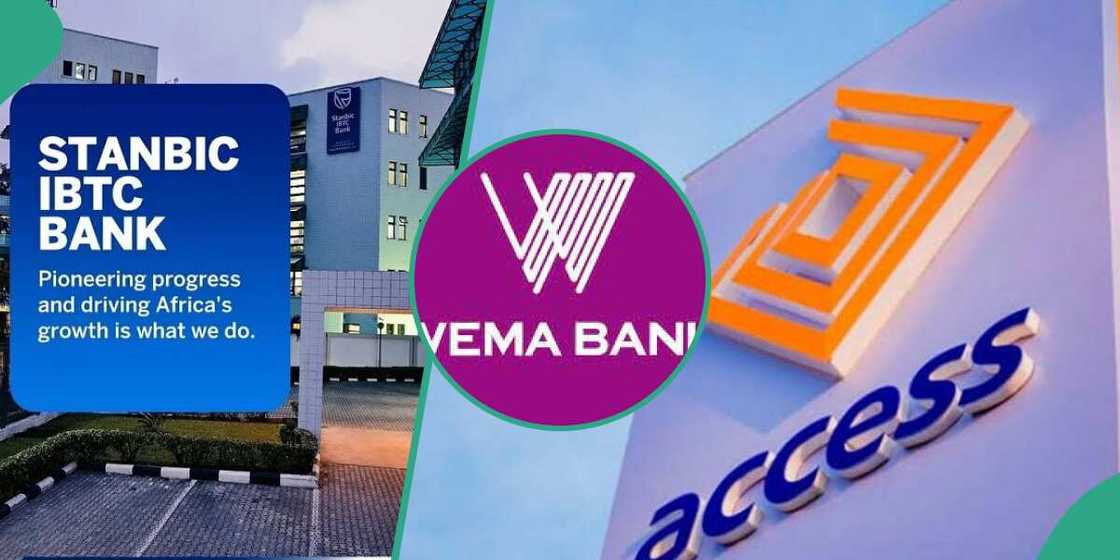Nigerian States Borrow N46bn From Access Bank, Zenith Bank, Fidelity to Pay Salaries
- About three Nigerian banks have reportedly loaned N46 billion to states for salaries
- Access Bank, Fidelity Bank, and Zenith Bank disclosed the information in their half-year result
- The banks revealed that the amount was from the Salary Bailout Fund given to them by CBN
Nigerian state governments borrowed about N46.17 billion from three banks to pay salaries between January and June.
This was disclosed in the banks' 2023 half-year result.

Source: Getty Images
Access Bank emerges as the biggest lender to states
Findings show that the states borrowed the most from Access Bank in six months, with about N42.97 billion in the period under review.
Zenith Bank followed with N1.78 billion, while Fidelity Bank loaned N1.42 billion in the six months reviewed.
The half-year financial statements of Access Bank showed N58.84 billion as an outstanding balance on the salary bailout fund by June 30, 2023, from the N101,81 billion in December 2022.
The bank said the amount represents the outstanding balance on the state salary bailout facilities given to the bank by the Central Bank of Nigeria (CBN) for disbursements to state governments for workers' salaries.
The facility reportedly has a 20-year tenor with a 2 per cent interest rate payable to CBN.
Access Bank revealed that it is under obligation to lend to the states at an all-in interest rate of nine per cent annually.
Fidelity Bank revealed in its financials that the outstanding balance on the salary bailout fund was about N80.65 billion as of June 30, 2023, from N82.07 billion in December 2022.
Nigerian government reports N5.5 trillion FAAC revenue in 6 months
It stated that the FGN Intervention Fund is a CBN Bailout Fund of N80.65 billion as of December 2022 and N82.07 billion, representing funds for the states in Nigeria having challenges with salary payment.
Zenith Bank's 2023 financial statements said the outstanding balance on the salary bailout fund was N125.14 billion as of June 30, 2023, from N126.92 billion in December 2022.
According to Punch, the loans occurred despite increased revenue allocation to the states from the federation account.
The Federal, state, and local governments had an additional N540 billion accruing to the federation account.
The statement was contained in the communique issued by the Federation Account Allocation Committee (FAAC) between January and July 2023.
In the first seven months of 2022, N4.96 trillion was disbursed to the three tiers of government, while in the same period in 2023, FAAC shared about N5.5 trillion to the three arms of government.
Meanwhile, 25 states in Nigeria reported a decline in their internally generated revenue and encountered a cash crunch in the first three months of 2023.
The 25 states earned about N182.26 billion in the first quarter of 2023.
A quarter-by-quarter analysis reveals that the states experienced a 3.07% shortfall or N5.77 billion from the N188.03 billion earned in the fourth quarter of 2022.
The 25 states reportedly projected an IGR of N219.56 billion for the first quarter of 2023 but earned about N182.26 billion, meaning 83.01% performance.
The development also means that the states' revenue underperformed by 16.99%, failing to hit their revenue targets.
States with the highest domestic debt
Legit.ng reported in April that five Nigerian states account for more than a third of the total domestic debt owed by state governments in Nigeria.
The states with the highest debts are Lagos, Delta, Ogun, Akwa Ibom, and Imo.
The Debt Management Office (DMO) said the total domestic debt owed by 36 state governments and the Federal Capital Territory went up by N879.50 billion in 2022 to N5.337 trillion as of December 2022.
The debts of the five states represent a 16.47% increase from N4.488 trillion as of the end of 2021.
Lagos owes N807.20 billion of domestic debt, while Delta State has about N304.24 billion.
Ogun State comes third with a total domestic debt of N270.45 billion, and Akwa Ibom and Imo State owe a combined domestic debt of N219.26 billion, respectively.
States with improved IGR in 2023
Legit.ng earlier reported that as of September 2023, data from the National Bureau of Statistics indicated Nigeria's 36 states experienced an increase in Internally Generated Revenue (IGR) from N682.67 billion annually to N1.76 trillion over six years (2015 to 2021).
However, upon closer examination, the data reveals varying growth rates among the states.
Access, Zenith, GTBank, and 8 others write Off N1.67 trillion in non-performing loans
Legit.ng had reported about 11 Nigerian banks recorded N1.67 trillion in non-performing loans following write-offs, Global Standing Credit (GSI), and credit risk management caused by economic challenges.

Read also
Currency outside banks rises to N2.2 trillion in Nigeria as Cardoso plans to end old CBN policies
The figure represents an increase of 37% from N1.22 trillion reported on December 31, 2022.
Zenith Bank, Access Bank, Guaranty Trust Bank, First Bank, Ecobank, and United Bank for Africa are the top non-performing loans for the period.
Source: Legit.ng






